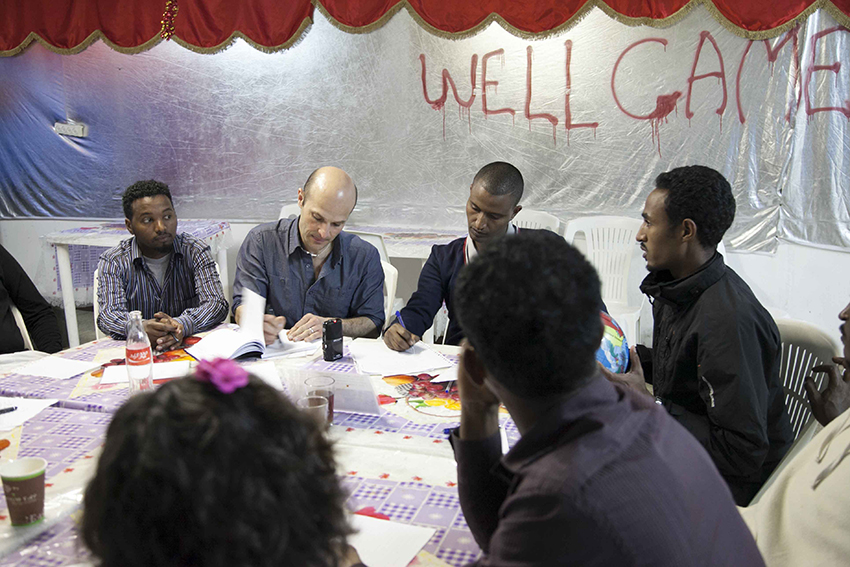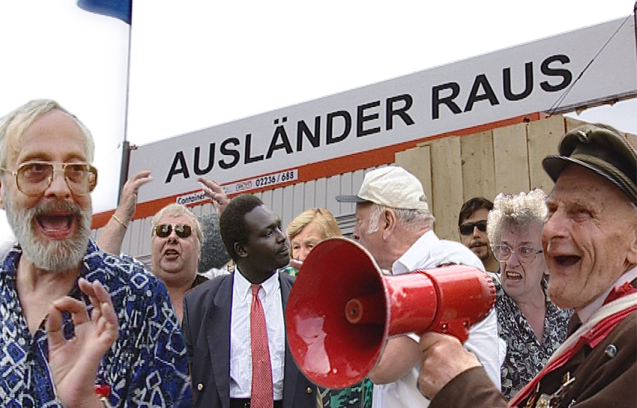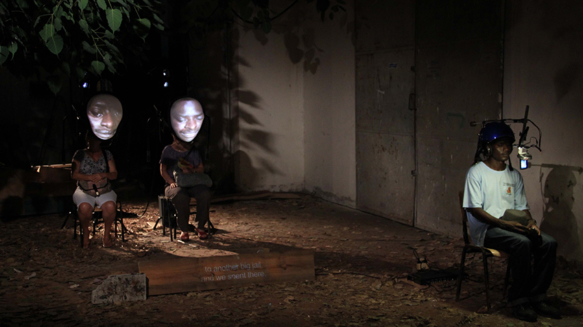Ghana ThinkTank (Christopher Robbins, John Ewing, and Maria del Carmen Montoya from the US), was established in 2006 as an international network of think tanks producing strategies for the solution of local problems in the “developed” world.
The founding principle was that think tanks in the so-called “third world” could offer solutions to “first-world” problems, as a way to expose the assumptions and power dynamics of cross- cultural work, particularly charity, aid and international development. They later discovered that this process could serve to create encounters between groups in conflict, and to produce unexpected alliances.
For “the Infiltrators”, think tanks composed of asylum seekers from Eritrea and Sudan offered solutions to the problems of Israelis from the south of Tel Aviv, and vice versa. The process evolved over the course of several months, and included conversations with dozens of residents and asylum seekers who raised problems ranging from dirty dog parks to racism. The installation at the Artport Gallery attempts to follow the processes undertaken by means of documentation, sculptural representations, and a series of workshops that will mobilize people out of the gallery and into the public sphere of south Tel Aviv, and vice versa. A mobile sculpture positioned on a tricycle functions as a point of encounter and a work station that continues to record problems and broadcast solutions in the gallery and throughout the city in the course of the exhibition. Perhaps also after it ends…
The project was created in collaboration with Maayan Sheleff
Community organizer- Yael Ravid
The vertical gardens are in collaboration with “Urban Environment Nursery – onya city”
The Neve Shaanan tour is in collaboration with Nisan Almog
Participants:
Sudanese Think Tank
Adam Ahmed, Adam Arbab, Ahmed Mirsal Adam, Anwar Suliman Arbab, Arbab Abakar, Bashor Mohammad Salah, Jamal Omer, Zakaria Mohammed Abdallah Saleh , Hassan Butora Rahima, Hassan Ahmed Shakur, Yeman Adam, Muhamed Haron Abker, Noureldin Mohammed Adam, Adil Aldao
Eritrean Think Tank
Binyam Gikidan, Habtom Kiflom Tesfamariam, Sulumani Mohammed, Samrawit Solomon, Philipos Tesfai, Shiden Kitiai, Tomass Gabrab, Teklit Michael
Israeli Think Tank
Or Levi, Yael Ben- Yefet, Maayan Ravid, Sophie Menashe, Ivry Baumgarten, Robert Ungar, Rachel Priel, Shira Dushy, and others.
Read More




